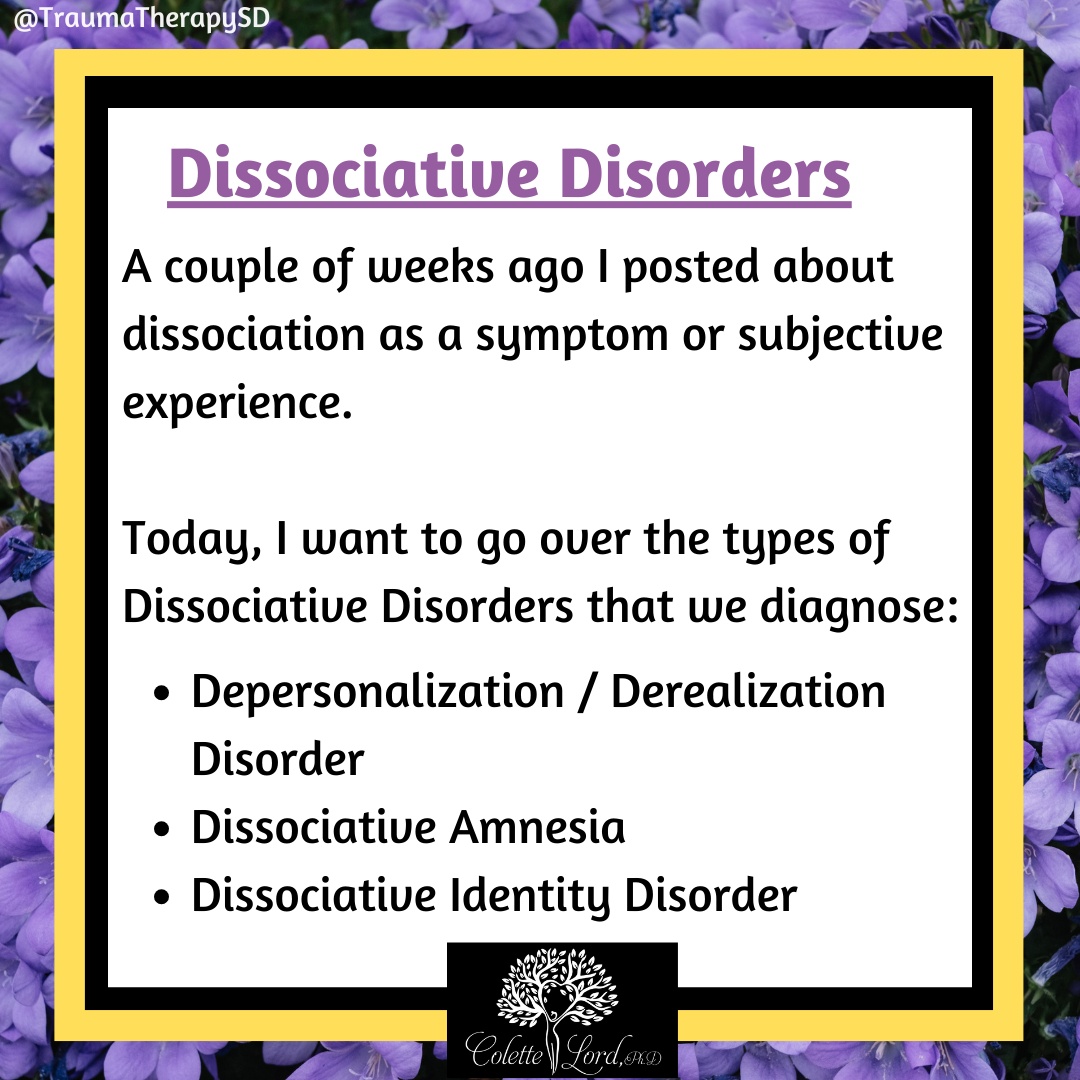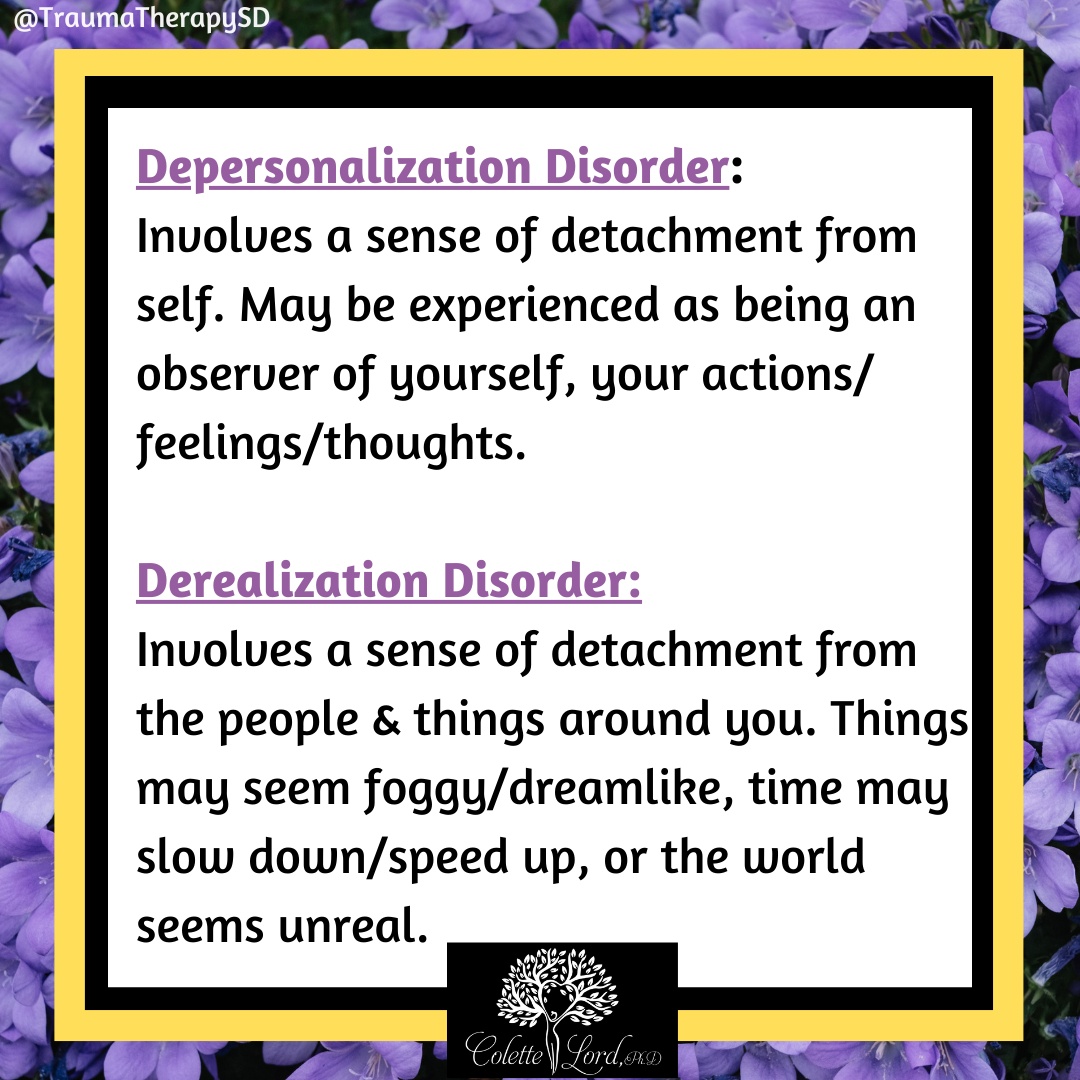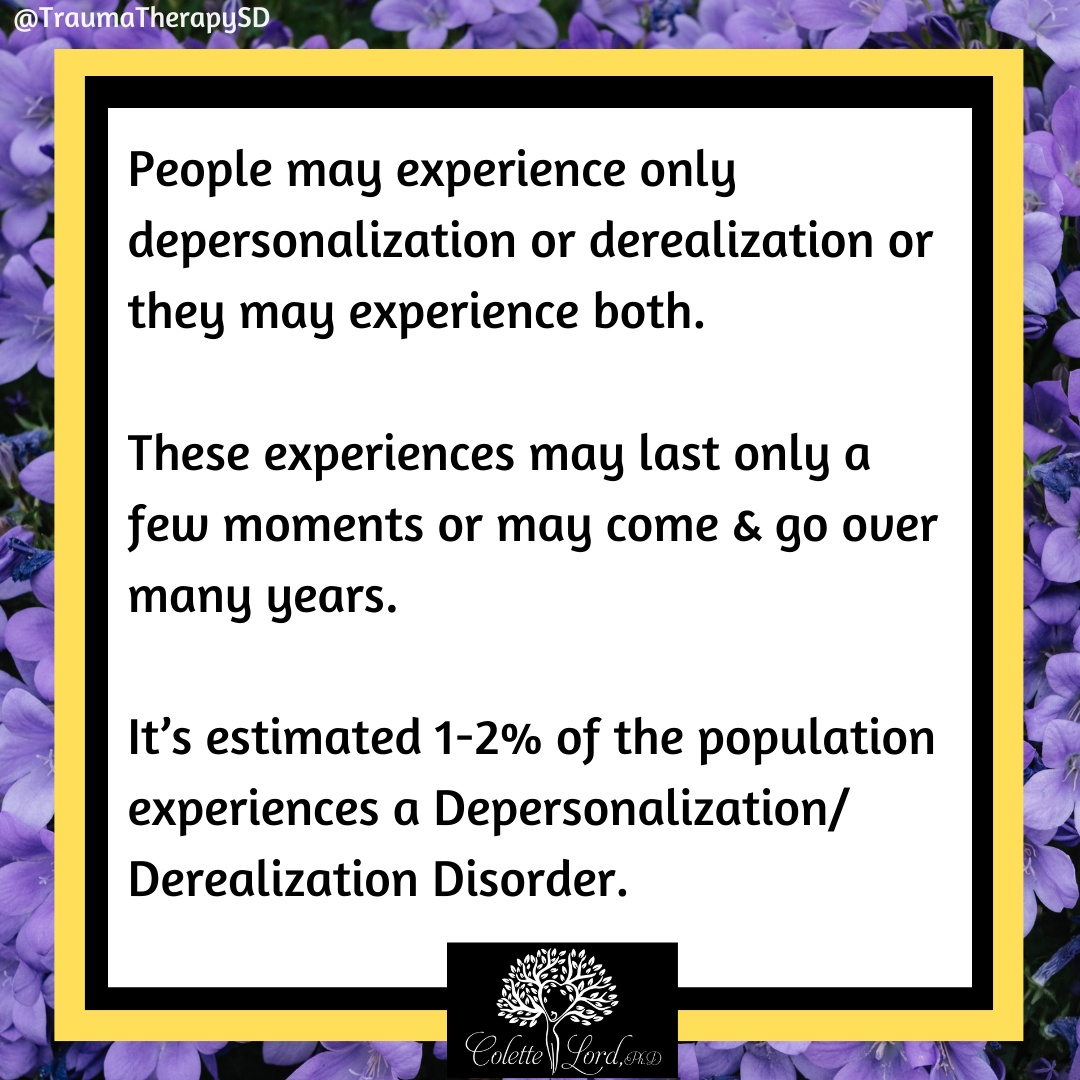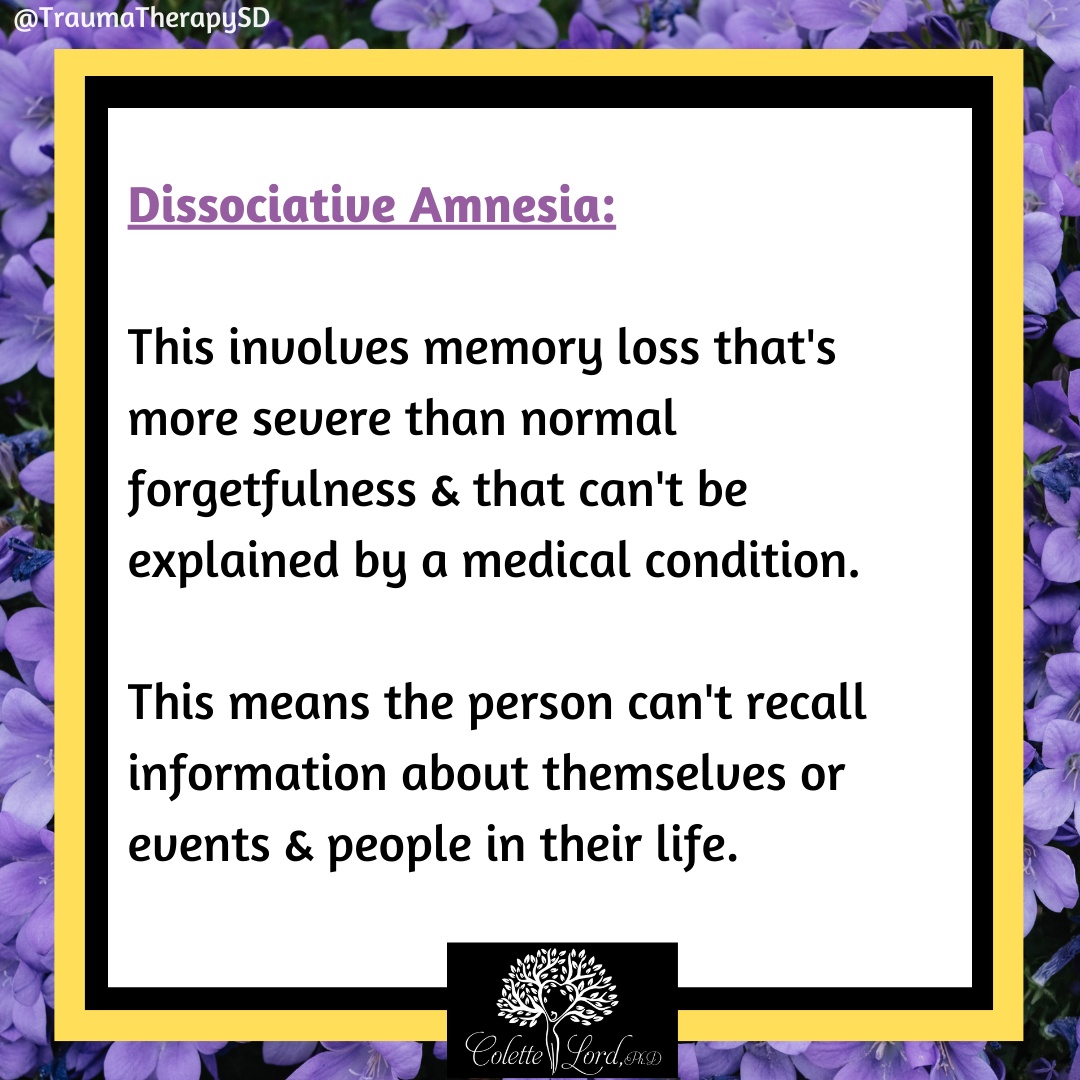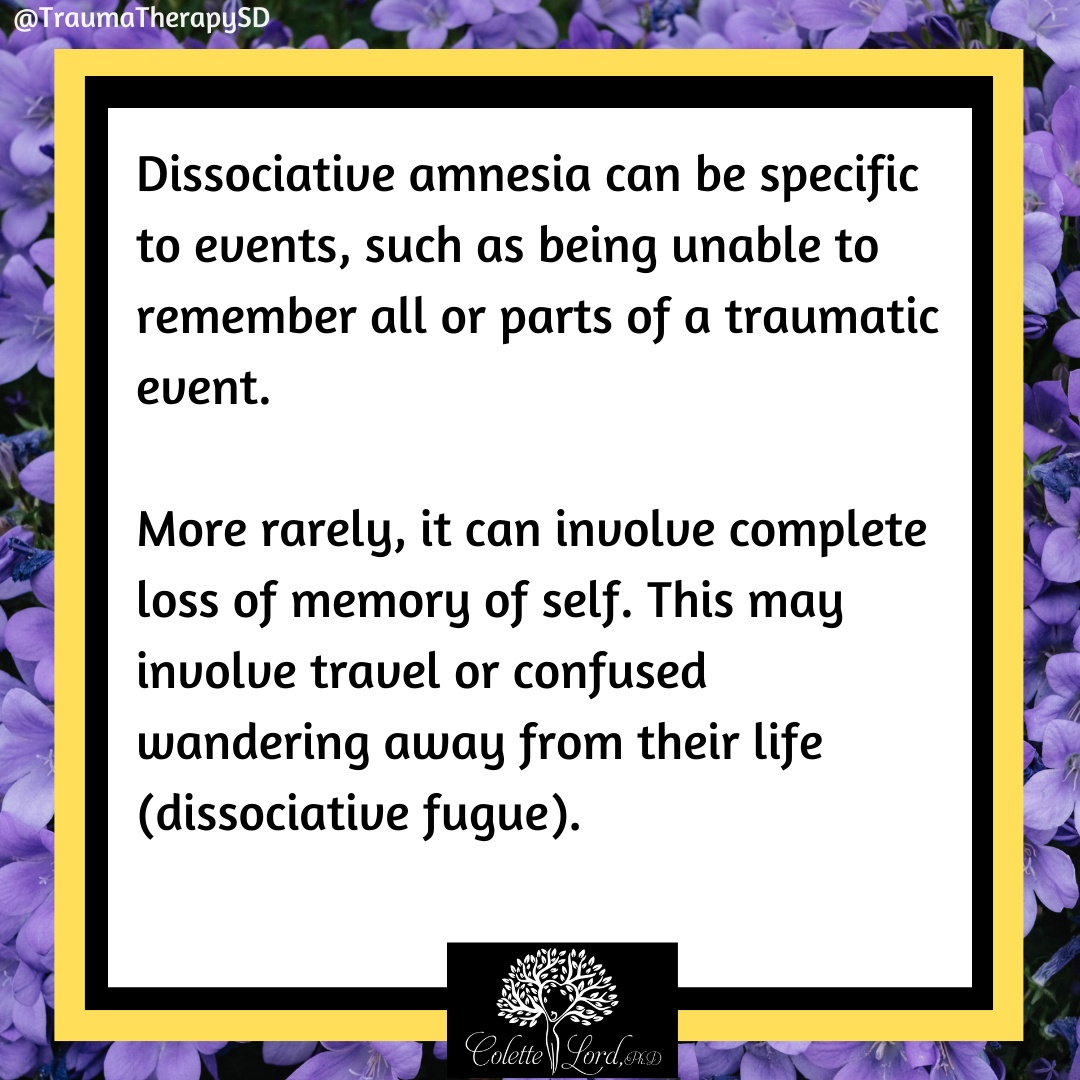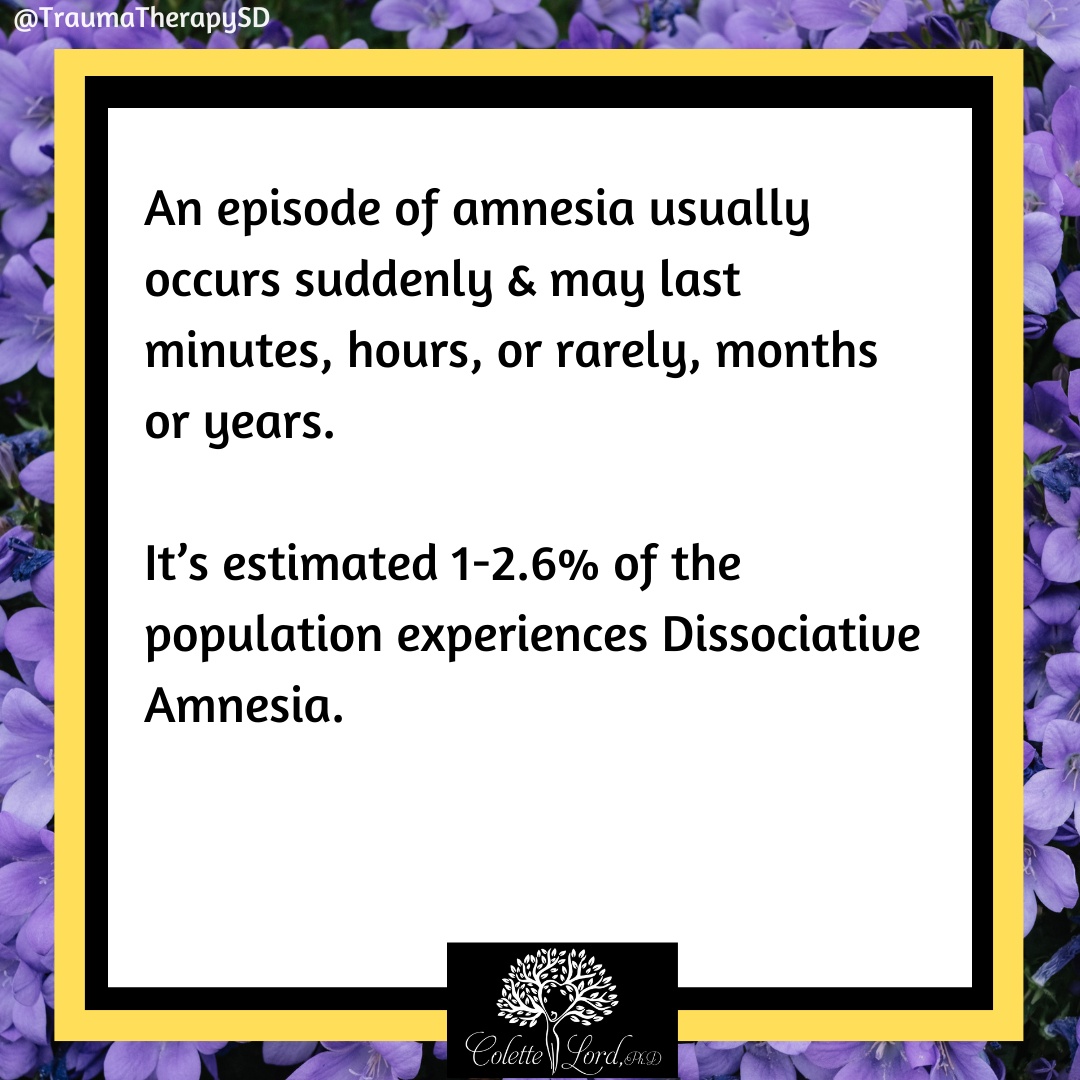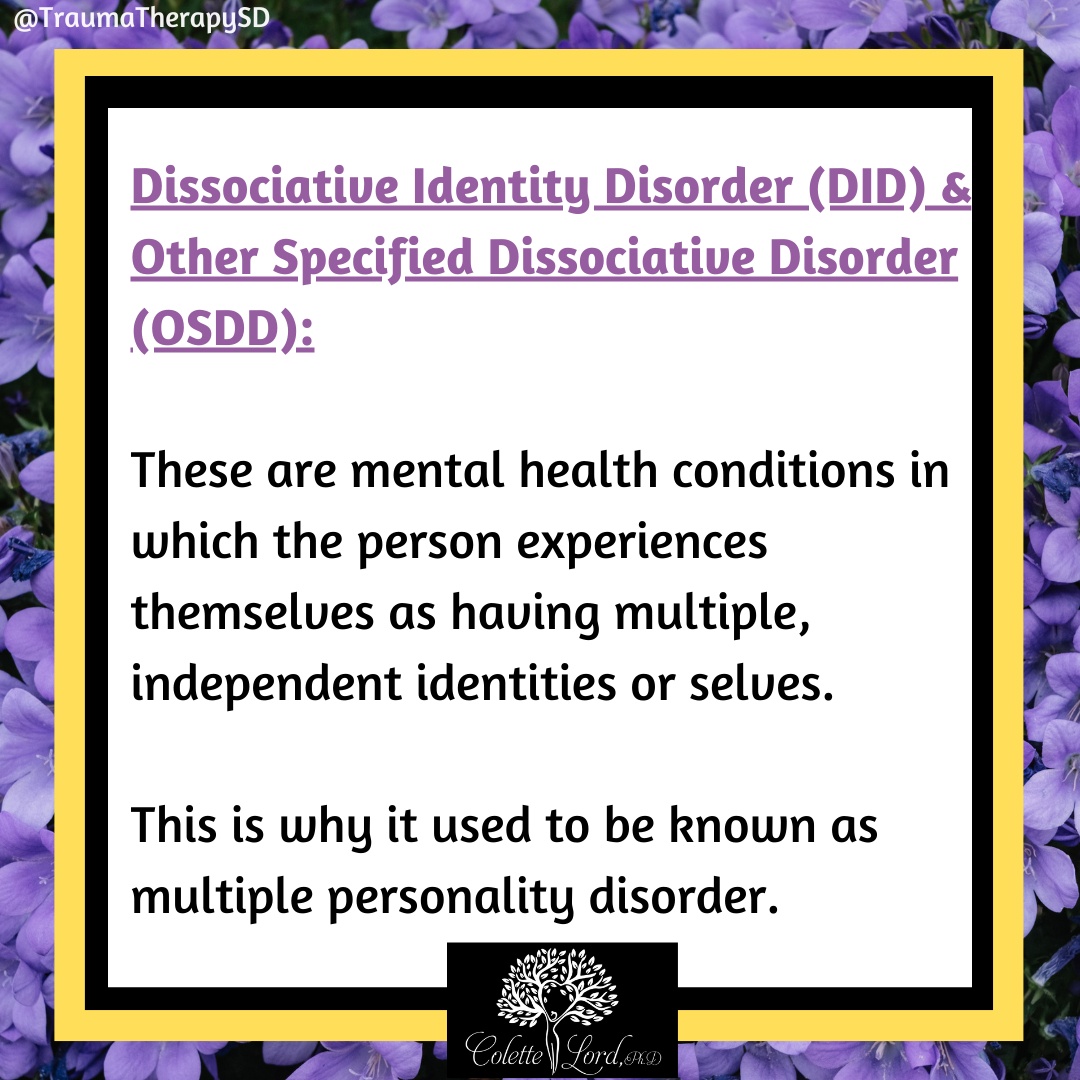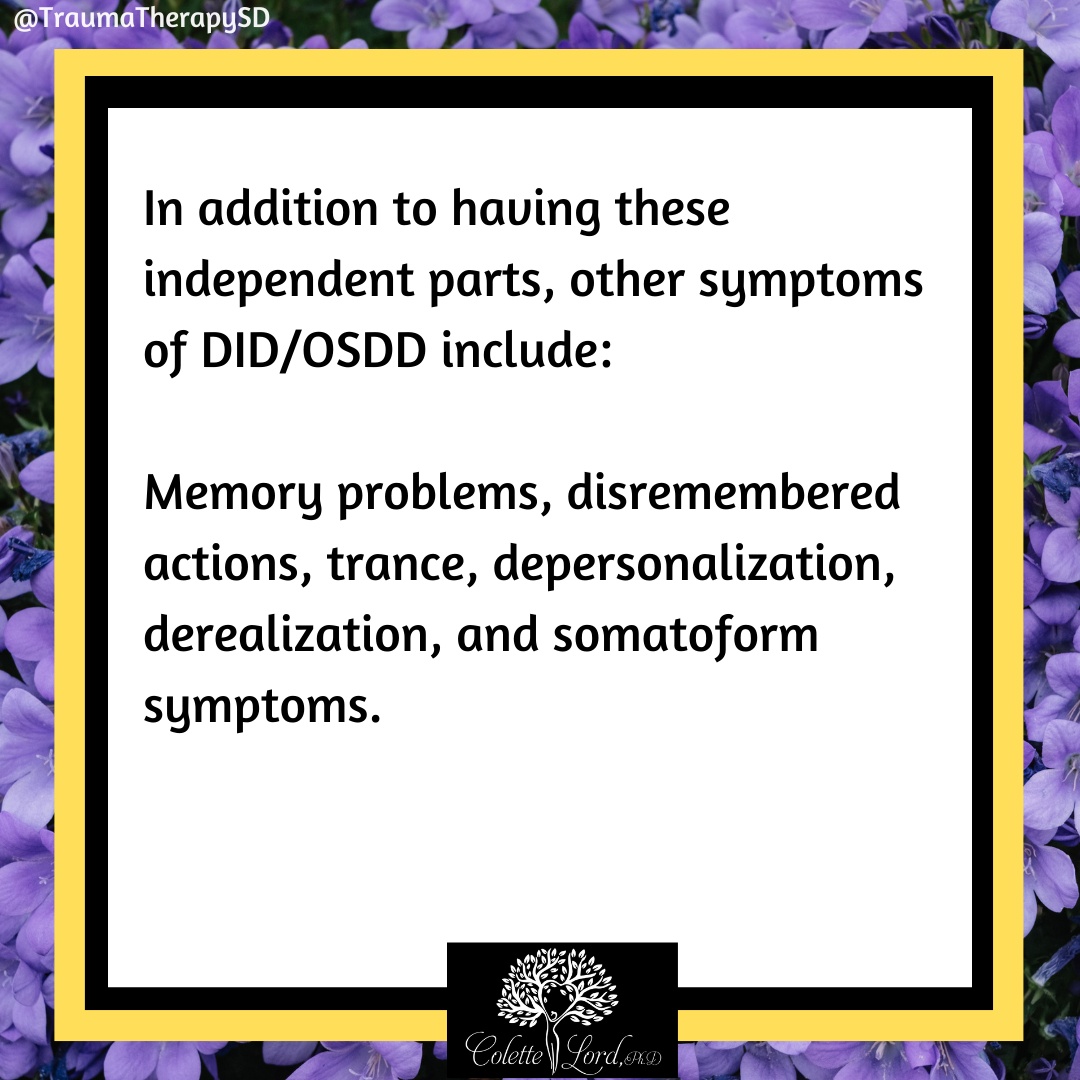Dissociative Disorders
A couple of weeks ago I posted about dissociation as a symptom/ subjective experience. Today, I want to go over the types of Dissociative Disorders that we diagnose:
- Depersonalization / Derealization Disorder
- Dissociative Amnesia
- Dissociative Identity Disorder
Depersonalization Disorder:
Involves a sense of detachment from self. May be experienced as being an observer of yourself, your actions/ feelings/thoughts.
Derealization Disorder:
Involves a sense of detachment from the people & things around you. Things may seem foggy/dreamlike, time may slow down/speed up, or the world seems unreal.
People may experience only depersonalization or derealization or may experience both.
These experiences may last only a few moments or may come and go over years.
Dissociative Amnesia:
This involves memory loss that’s more severe than normal forgetfulness & that can’t be explained by a medical condition.
This means the person can’t recall information about themselves or events & people in their life.
Dissociative amnesia can be specific to events, such as being unable to remember all or parts of a traumatic event.
More rarely, it can involve complete loss of memory of self. This may involve travel or confused wandering away from their life (dissociative fugue).
An episode of amnesia usually occurs suddenly & may last minutes, hours, or rarely, months or years.
Dissociative Identity Disorder (DID) &
Other Specified Dissociative Disorder (OSDD):
These are mental health conditions in which the person experiences themselves as having multiple, independent identities or selves.
This is why it used to be known as multiple personality disorder.
In addition to having these independent parts, other symptoms of DID/OSDD include:
Memory problems, disremembered actions, trance, depersonalization, derealization, and somatoform symptoms.
This is the diagnosis with the most misperceptions and misunderstandings associated with it and I will be posting more about DID/OSDD myths in coming weeks.

